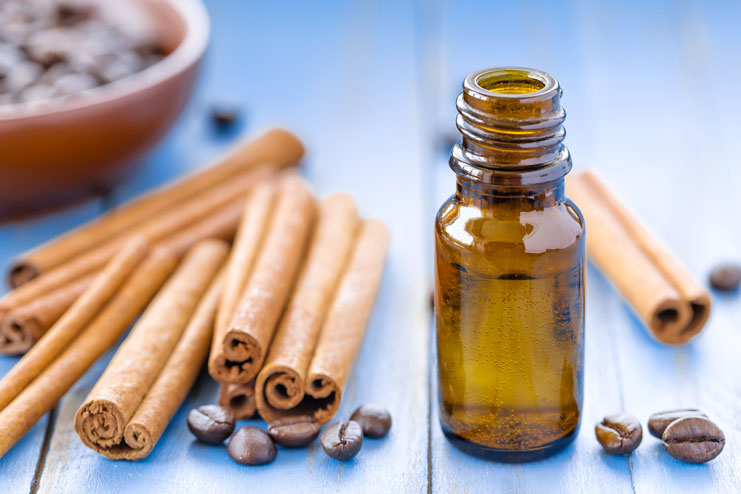
At least once in a lifetime, you must have used cinnamon while cooking. The scent of this kitchen essential is spicy, sweet, and for many, filled with happy memories of succulent and savory food and cozy days. But did you ever think of using it in the form of oil? Yes, the cinnamon essential oil has been a thing for ages. However, only those who depend on natural ingredients in their lives knew about it so far.
The tree that is its main source, Cinnamomum zeylanicum, belongs to the laurel plant family. It is native to Sri Lanka but also grows in other parts of the world like China and India. Cinnamon is one of the oldest spices. Its oil is extracted from the leaves and twigs of the same tree that produces cinnamon barks that we use in cooking. The final oil production is done through steam distillation. Traditionally, Ancient Egyptians used it as a medicine or for flavoring and massages. Germans also used it as incense in the temples.
Today, this essential oil is used extensively in aromatherapy. It also has both aromatic and antiseptic properties that offer a wide variety of health and beauty benefits. Antibacterial, antifungal, anti-diabetic, and antioxidant are its top qualities that you would be interested in. It is prized for its lush fragrance.
It is available in the market in varieties. Most commercially available ones are derived from the Cinnamomum cassia tree, whereas, one that comes from the Cinnamomum Verum is more expensive and called Ceylon cinnamon.
Table of Contents
Mood Enhancer
It is popular at homes for aromatherapy treatments. In this therapy, the essential oils are diffused or spritzed into the air so they can be breathed in or oozed into the skin. It ultimately helps promote better sleep and provide relaxation.
Antibacterial Benefits
It helps combat hard-to-treat bacterial organisms, which can be potentially life-threatening. It supports our oral health as well by working against two agents that cause oral infections and cavities in teeth. It is a safe, effective, and non-chemical additive alternative that you can use for preserving products and increasing their shelf-life.
Hair Growth and Fullness
Some anecdotal reports and conventional practices say that a mask made of cinnamon and olive oil and honey is effective at thickening hair and its growth.
Cosmetics and Flavoring
A common cooking ingredient and essential oil, it is found as an ingredient in sugar-free gum, hard candies, tea, and baked goods. Apart from that, it is also used in toiletries, such as toothpaste, mouthwash, soap, body lotion, etc. You can also make your own room spray or candles and scent them with this essential oil. Not just that, there are many other ways to accentuate the odor of your interior like pervading its sweet yet spicy fragrance in seasonal items such as pine cones and garlands.
However, make sure you avoid any kind of topical use of cinnamon essential oil as it can have some side effects.
Having said that, there are a wide array of ways that you can use to incorporate this luxury in your daily life.
1) Keep your hair healthy and free of lice by adding a drop of oil to your shampoo and massaging it gently into the scalp and strands.
2) Make a DIY foot soak by mixing a drop of it in warm water along with salt and lemon juice.
3) Craft a natural insect repellent by diffusing the oil or spray a diluted solution around your home.
4) Cleanse your kitchen countertops and other surfaces around your house by mixing this essential with water to create a non-toxic, natural disinfectant.
5) Rejuvenate and exfoliate your facial skin with a natural exfoliator made with cinnamon sugar and oil and olive oil.
The Final Thought
Is cinnamon leaf essential oil safe? Yes, if it is Young Living essential oils. It is versatile and can have many applicants. Though you need to take care of its purity and therapeutic grade while purchasing.
